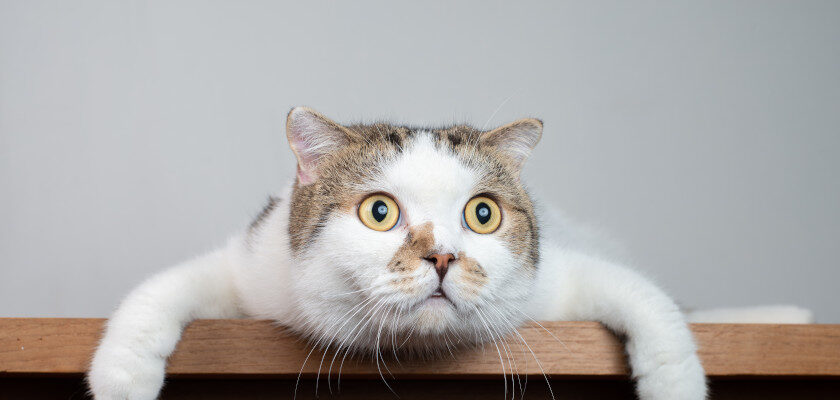Flatulence And Health
Flatulence is a normal bodily function that occurs when gas accumulates in the intestines. The gas is composed of carbon dioxide, nitrogen, oxygen and hydrogen. When these gases escape from the intestines, they are expelled through the rectum and anus as flatus. Flatulence can be embarrassing and sometimes uncomfortable, but it is a normal bodily function. But do cats fart? Is flatulence in cats a symptom of a disease?
Do All Animals Fart?
The answer to this question is this – a lot of animals pass gass in some way. This includes dogs, horses, cows, pigs and cats. The gas that is expelled from the stomach and intestines is composed of carbon dioxide, methane and nitrogen. In some cases, the gas can be smelly and unpleasant, but it is a natural process that occurs in most animals. Cats however, tend to pass gas more quietly than other animals and the gas is usually not as smelly. Usually, the gas that cats produce is not noticeable and it is not a symptom of a health problem.
Why Do Cats Fart?
One reason is that cats have a four-chamber stomach. When they eat, food moves from the stomach to the small intestine, where it is broken down into glucose and other nutrients. The intestines absorb these nutrients and the leftover material passes through to the large intestine, and finally the rectum and anus. Gases form as the material breaks down in the large intestine, and these gases escape.
What Are The Causes Of Cat Flatulence?
There are a few reasons that cats might fart. One reason is that they may have swallowed too much air while eating or drinking. When this happens, the air has to go somewhere and it often comes out as a fart. Another reason is that some cats can have stomach problems that cause them to fart. And finally, some cats might fart because they have a gas build-up in their intestines. This can happen when the cat doesn’t eat enough or when they eat things that are difficult to digest. So, if your cat is farting a lot, it’s a good idea to take them to the vet to make sure there’s not something wrong. Cat flatulence may be a symptom of an underlying digestive problem, such as inflammation of the pancreas (pancreatitis), a blockage in the intestines, or excessive hairballs.
A healthy cat typically doesn’t fart a lot, but there are a few things you can do to help keep your cat from passing gas. One thing is to make sure they’re eating a balanced diet that includes plenty of fiber. You can also give them digestive supplements to help them break down food better. And finally, if your cat is having a lot of gas, you can try to get them to exercise more. A little bit of activity will help move things through their digestive system more quickly.
Food Allergies
One of the most common symptoms of a food allergy is gastrointestinal problems, such as gas, bloating, diarrhea and vomiting. Cats are no different. If your cat has a food allergy, they may fart more than normal. In this case, you’ll need to work with your veterinarian to identify the food allergen and remove it from your cat’s diet. If your cat has a food allergy, you may need to feed them a special diet that is low in carbohydrates and high in protein. You can also purchase commercial cat food that are designed for cats with food allergies. Many cats can be allergic to lactose found in milk, as well as gluten, a protein found in grains. Cats may also be allergic to certain fruits and vegetables.
If your cat is having trouble digesting their food, you may want to feed your cat food that is easy to digest. It is always best to speak with your veterinarian before making any changes to your cat’s diet.
Intestinal Parasites
Intestinal parasites, such as roundworms, hookworms and tapeworms, can cause a variety of gastrointestinal problems in cats, including excessive farting. If your cat has an intestinal parasite, they will likely need to be treated with medication.
Intestinal Obstruction
Intestinal obstruction may also be a reason why your cat produces excessive gas. This happens when an object, such as a hairball, becomes lodged in the intestines and blocks the flow of intestinal contents. A hairball is simply a mass of hair that has been swallowed by the cat. The hair accumulates in the stomach and intestines, and can cause a blockage. If left untreated, a hairball can result in serious health problems for your cat, including digestive problems and malnutrition. When the obstruction occurs, the cat’s digestive system is forced to work overtime to try to move the obstruction along. As a result, larger amounts gas may be produced.
So Can Cats Fart?
Yes, they do, but it’s not usually something to worry about and the gas they produce is not very noticeable. If your cat is having a lot of gas, take them to the vet to make sure everything is okay.
Excessive farting in cats might be caused by something as simple as a change in diet, but it could also be indicative of a more serious health condition. If your cat is suddenly passing gas more than usual, take him or her to the veterinarian for a check-up.
Similar Posts:
- Why Does My Dog Fart So Much? Gas Problems and Flatulence in Dogs
- Do Dogs Fart? Everything You Wanted to Know About Flatulence In Dogs
- Do Cats Eat Mice? Can Cats Get Sick from Eating Small Rodents? We Have the Answer!
- Why do the cats eat grass? 3 reasons
- Can Cats Eat Strawberries? Why Do Cats Like Strawberries?
- Can Dogs Eat Raw Chicken? Things to Know Before Feeding Your Dog Raw Meat
- Can Cats Eat Fruit? What to Remember About Human Food
- Can Cats Eat Watermelon? How Beneficial Is It?

